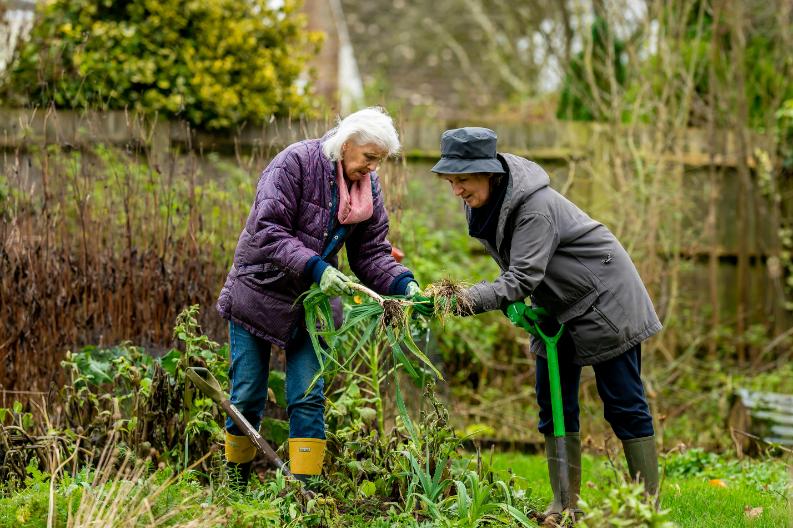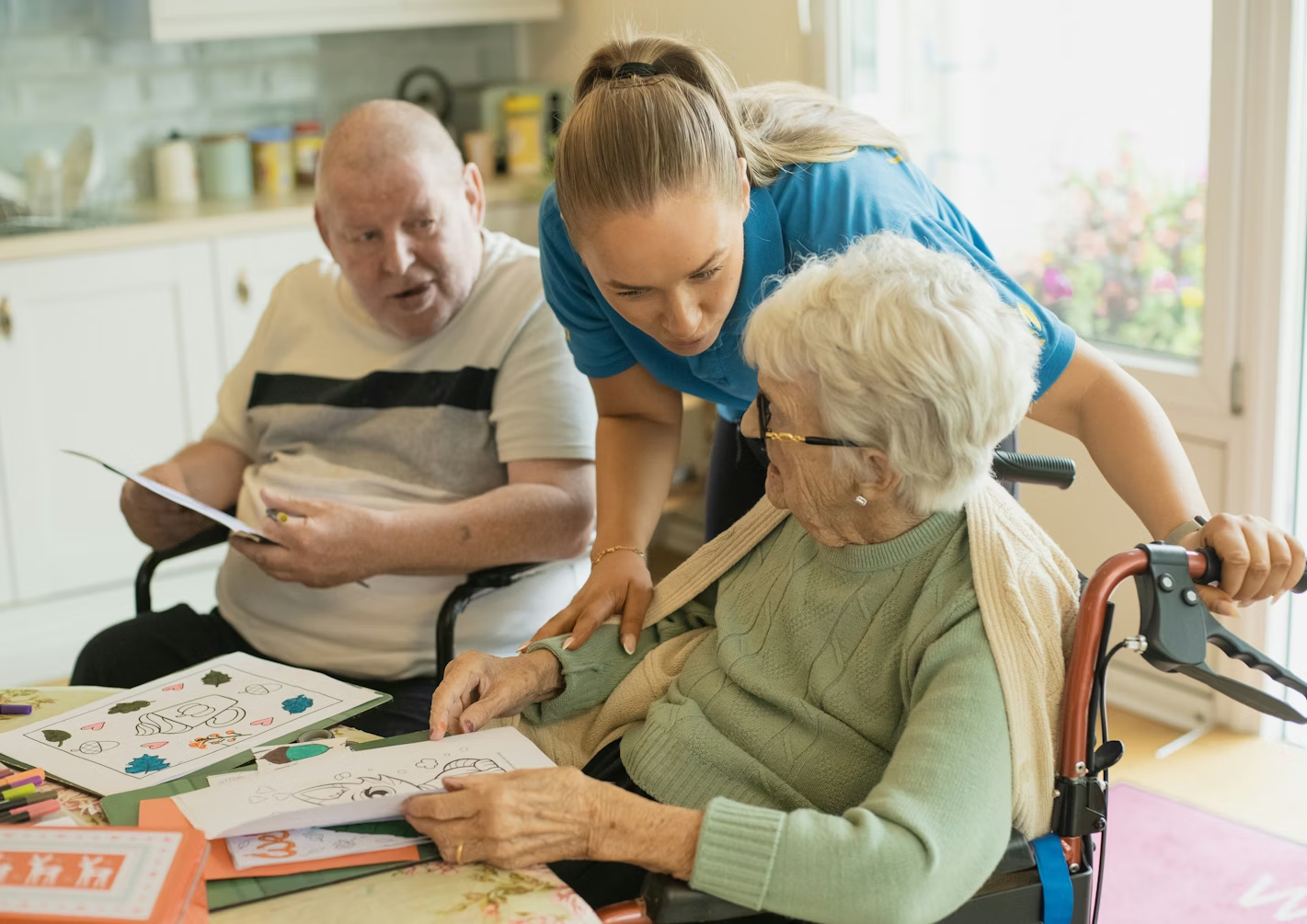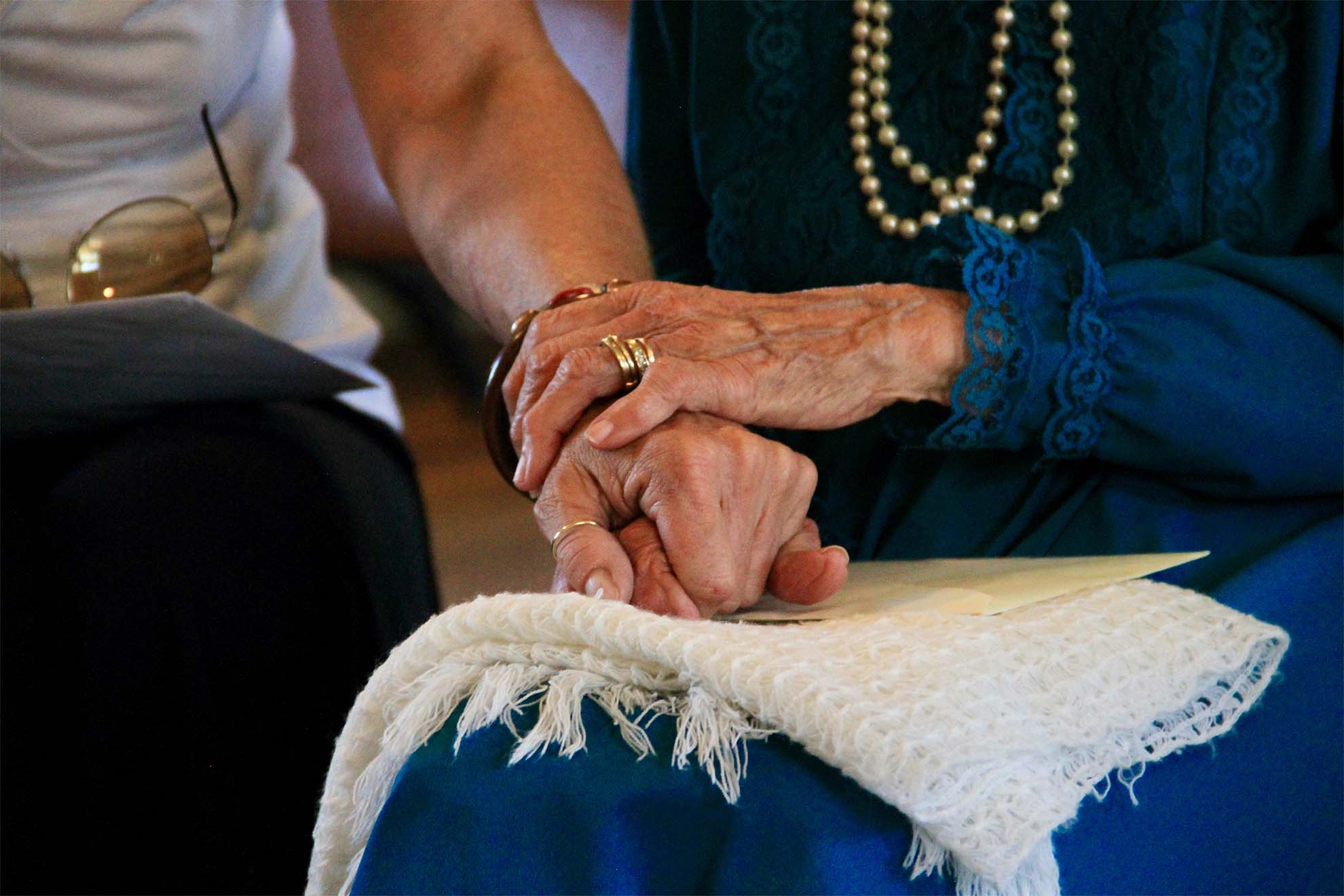The Importance of Dementia Friendly Activities

Dementia affects not just memory, but every aspect of of a person's life - from their daily routines and self care to their mental health, social interaction, and physical well being. At Craigieknowes Care Home, we understand that offering the right support means more than just clinical care. That's why we prioritise the importance of dementia friendly activities as a core part of our approach to dementia care.
Engaging people living with dementia in meaningful activities has a significant impact on their mental well being, physical health, and sense of self. In this blog, we'll explore how these activities can support people living with dementia, promote active participation, and provide emotional support - all while helping them feel connected, capable, and truly valued.
Why Dementia Friendly Activities Matter
As dementia progresses, a person's ability to perform familiar tasks or communicate verbally may diminish. However, that doesn't mean their need for purpose, enjoyment, and self expression disappears. In fact, the opposite is true.
Dementia friendly activities are designed to stimulate the senses, encourage cognitive stimulation, support fine motor skills, and foster a sense of achievement - regardless of a person's abilities. These activities can improve sleep patterns, reduce feelings of anxiety, and support better self esteem and self confidence.
By tapping into past interests, life experiences, and preserved abilities, these activities can evoke memories, strengthen verbal communication, and offer a platform for social interaction and connection with family members, carers, and peers.
The Power of Meaningful Activities
Research shows that participating in regular, meaningful activities leads to improvements in mood, behaviour, and overall well-being for people living with dementia. These activities don't need to be complex - in fact, the most effective ones are often simple and familiar.
Some excellent examples include:
- Reminiscence therapy, using memory boxes, short stories, or favourite songs to help evoke memories and encourage storytelling
- Gentle physical exercise like walking groups, dancing, or gentle stretching to support mobility and balance
- Creative activities such as painting, drawing, or crafts to enable self expression and stimulate thinking
- Sensory activities like handling fabric, baking, or enjoying aromatherapy to trigger positive associations and emotions
At Craigieknowes, we tailor these activities based on each person's life history, personality, and preferences. This person-centred approach ensures that both the person's ability and interests are always taken into account, making them more likely to engage and benefit.
Supporting Physical and Cognitive Health
A key goal of dementia friendly activities is to maintain or even enhance physical health and cognitive function for as long as possible.
Physical Health Benefits
Activities that promote movement help with hand eye coordination, mobility, circulation, and strength. Even low-impact tasks like folding laundry, light gardening, or simple ball games can maintain fine motor skills and muscle tone, while reducing restlessness and improving sleep patterns.
Encouraging physical activity - whether through structured sessions or informal movement - also helps reduce the risk of falls and contributes to an overall sense of well being.
Cognitive Stimulation
Equally important are activities that promote cognitive stimulation. These might include:
- Word games like crosswords or word searches
- Memory games and storytelling sessions
- Listening to or discussing new articles
- Puzzle-solving
- Singalongs and music appreciation
Such activities help stimulate thinking, preserve language skills, and encourage verbal communication, even in the later stages of dementia.
Emotional and Social Benefits
For people with dementia, social isolation can be a major concern. As the condition progresses, it's easy for individuals to withdraw due to communication difficulties or lack of confidence. This is where the social interaction provided by group activities becomes invaluable.
Reducing Stigma and Building Connections
Creating an environment where people feel supported and understood helps reduce stigma and promote dignity. Dementia friendly activities that involve family members, carers, or young people in intergenerational activities offer even greater benefits by fostering understanding and creating shared moment of joy.
At Craigieknowes, we regularly involve the local community in events and activity days, which may include music performances, craft fairs, or themed reminiscence sessions. These interactions help people living with dementia feel part of something larger - a valued member of the wider world.
Boosting Self Esteem and Emotional Support
Everyone needs to feel competent and appreciated. When people living with dementia participate in activities where they can succeed - whether that's planting a seed, painting a picture, or helping set a table - it boosts self esteem and provides essential emotional support.
Creating a Routine Through Planning Activities
A consistent routine can be very reassuring for someone with dementia. Incorporating dementia friendly activities into daily life helps provide structure and predictability.
Planning activities around the person's preferred times for engagement (typically late morning or early afternoon) can make participation easier and more enjoyable. Occupational therapists often advise building a mix of stimulating and calming activities into the week to keep sleep patterns, mood, and behaviour balanced.
Sample routine activities at Craigieknowes may include:
- Morning: Light exercise with music and movement
- Midday: Art of crafting session
- Afternoon: Reminiscence therapy or a walking group outdoors
- Evening: Listening to favourite songs or a quiet reading of short stories
This blend support mental health, physical health, and emotional well-being, while also giving each day a reassuring sense of rhythm.
Personalising Activities for Maximum Impact
Every individual is unique. What brings great pleasure to one person may hold little meaning for another. That's why it's essential to consider personal history, preferences, and routines when choosing or adapting activities.
Occupational therapists often help develop personalised activity plans that take into account the person's life history, family stories, hobbies, and career background. This approach respects individuality and ensures that the activities feel relevant and rewarding.
For example, a former gardener might enjoy potting plants, while someone who once worked in an office may enjoy organising items or reading. These tailored activities do more than fill time - they help create moments of connection and pride.
Tapping into Community Resources
At Craigieknowes Care Home, we understand the value of collaborating with external organisations to enhance our activity offerings.
Groups like the Alzheimer's Society, Dementia UK, and local support groups offer fantastic tools, training, and inspiration for carers and activity coordinators. Whether it's dementia friendly cinema screenings, museums visits, or local choirs, community resources can offer a wealth of opportunities for people living with dementia to engage beyond the care home environment.
We also partner with local schools and youth organisations to host intergenerational activities. These events not only reduce stigma and promote empathy, but they also bring vitality, curiosity, and laughter to our home - emotions that have a lasting positive impact.
Involving Family Members and Carers
Family members play a key role in the success of dementia friendly activities. Whether it's attending group sessions, helping create memory boxes, or joining in for a musical afternoon, their involvement adds personal warmth and comfort to the experience.
We encourage families to share insights into their loved one's interests and history, helping us plan more personalised and effective activities. These shared experiences can also strengthen bonds and help both you and your loved one enjoy meaningful time together.
Adapting as the Condition Progresses
As dementia advances into the later stages, certain types of activity may need to be adapted. While verbal communication may decline, the need for human connection remains strong.
Sensory experiences, such as touching different fabrics, listening to nature sounds, or enjoying hand massages with scented lotions, can continue to offer comfort and engagement. Activities like watching fish in a tank, brushing a pet, or flipping through a photo album can also offer calm stimulation and emotional connection.
They key is to always seek out way to support the person's ability, not focus on limitations. With care and creativity, we can continue to offer opportunities for joy, even as the condition progresses.
Encouraging an Active Role in Daily Life
One of the most empowering aspects of dementia friendly activities is the opportunity they provide for residents to take an active role in their own care and surroundings. Simple tasks such as setting the table, watering plants, or assisting with preparing snacks can make a huge difference in a person's sense of identity and purpose. These small contributions allow both the person and those around them to focus on abilities rather than limitations, helping to reduce feelings of helplessness and promote independence where possible.
The Role of Clear Signage and Environmental Support
The physical environment can greatly influence the effectiveness of dementia friendly activities. At Craigieknowes, we utilise clear signage, visual cues, and carefully designed spaces to support navigation and orientation. These adaptations reduce confusion and anxiety, especially when moving between rooms for group activities or meals. Environmental factors such as lighting, noise levels, and comfortable furnishings also help create a calm and engaging space for people living with dementia to participate confidently.
The Benefits of Sensory Activities
Sensory activities are particularly beneficial for residents in the later stages of dementia, where traditional communication and participation may become more difficult. Tactile experiences like handling soft fabrics, rolling dough, or feeling the textures of nature-based objects can bring great pleasure and emotional comfort. These activities can help stimulate thinking, offer moments of calm, and create opportunities for self expression even without the need for words. Smells, sound, touch, and visual cues can all be harnessed to awaken memories and reduce distress.
Fostering Emotional Resilience Through Routine
As mentioned earlier, consistent routines can play crucial role in helping individuals feel safe and secure. By scheduling dementia friendly activities at regular intervals and aligning them with natural energy patterns, care teams can better support emotional regulation. Over time, these routines help build trust, reduce disorientation, and provide a framework within which meaningful engagement can take place. Even something as simple as a daily cup of tea accompanied by a familiar song can offer a strong emotional anchor in a resident's daily life.
Involving Young People in Dementia Care
There is growing recognition of the value of involving young people in dementia care through intergenerational activities. Schools and youth groups can participate in storytelling sessions, music events, or collaborative art projects with residents, resulting in enriching experiences for all involved. These exchanges help reduce stigma, break down generational barriers, and allow people living with dementia to feel included and appreciated. At Craigieknowes, we work closely with local schools to regularly invite students into our home for shared activities and mutual learning.
Working With Occupational Therapists and Support Groups
Our care teams at Craigieknowes work hand-in-hand with occupational therapists and local support groups to deliver personalised and effective programmes. These professionals help assess a resident's interests, cognitive function, and physical ability to tailor activities that offer the most benefit. Whether it's designing a bespoke exercise plan to improve eye coordination, or recommending tools for cognitive stimulation, their expertise ensure that every activity serves a meaningful purpose. Additionally, links with groups like the Alzheimer's Society and Dementia UK help us stay informed of best practices and emerging research.
A Life Filled with Meaning
At Craigieknowes Care Home, we believe that quality dementia care is about more than just safety and supervision - it's about connection, purpose, and the continued celebration of each person's unique story.
The importance of dementia friendly activities lies in their ability to support physical activity, provide cognitive stimulation, nurture mental health, and promote active participation. But perhaps most of all, they allow people with dementia to feel joy, dignity, and belonging - not just occasionally, but as part of their everyday daily life.
We are committed to creating a warm, engaging, and dementia friendly environment where every resident can continue to grow, connect, and live a life of meaning.
If you'd like to know more about our activity programmes, partnerships with the Alzheimer's Society or Dementia UK, or how we work with family member and community resources, please do get in touch - we're always happy to help.






